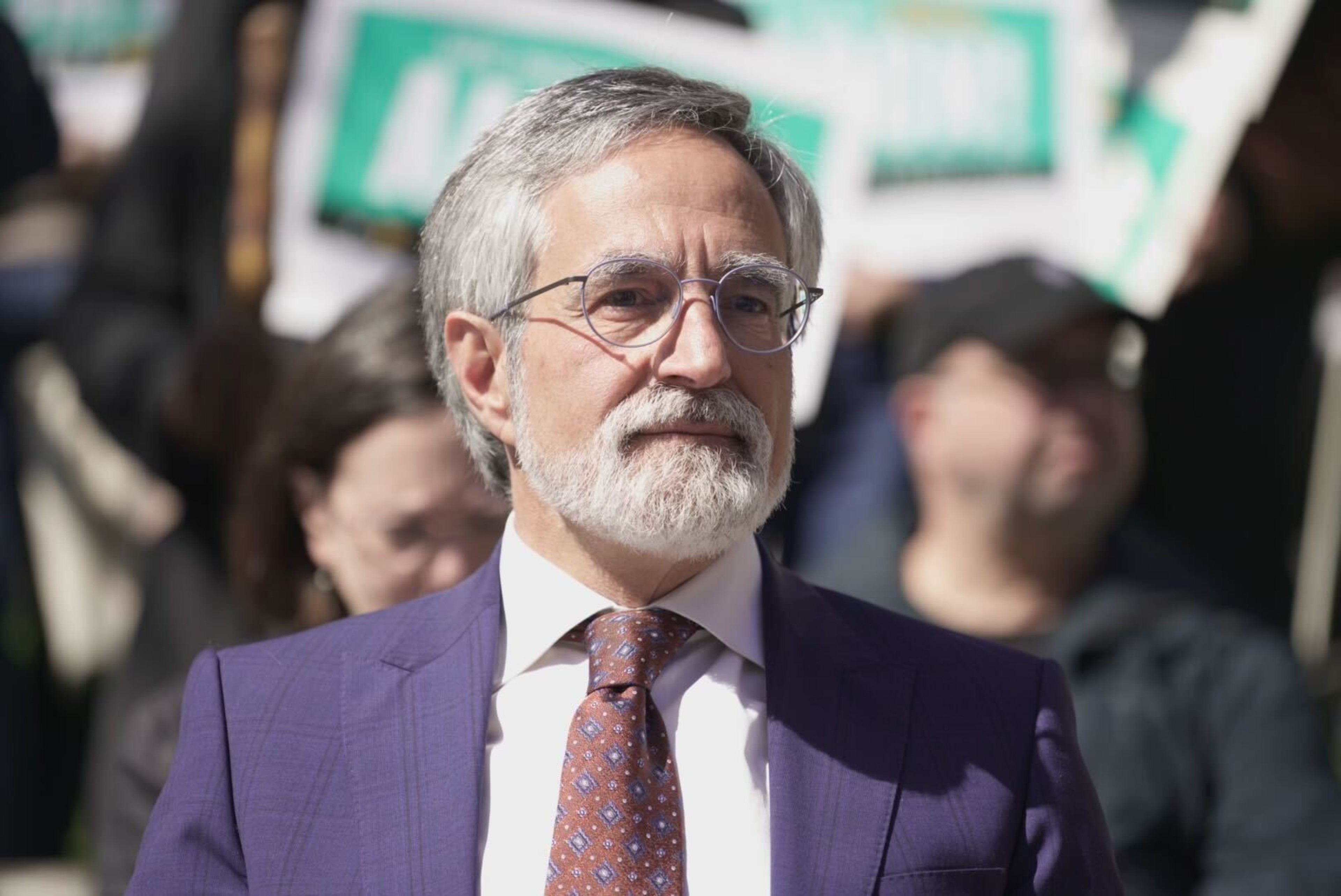Mayor London Breed is leading in the latest poll on the San Francisco mayor’s race—though the results come with a few caveats.
In a poll that simulated a ranked-choice contest, Breed holds a slim edge over her moderate challengers. However, the mayor’s unfavorability numbers are high, and many voters remain undecided, meaning lots could change between now and Nov. 5.
Among the top five candidates—Breed, nonprofit leader Daniel Lurie, former Supervisor Mark Farrell, Supervisor Ahsha Safaí and Board of Supervisors President Aaron Peskin—the sitting mayor came out ahead with 51.4% of the vote, the newly commissioned poll (opens in new tab) from the moderate-leaning political group GrowSF found.
But between the poll’s margin of error (4.9%) and the significant number of undecided voters it found (28%), it’s clear that the mayoral race is anyone’s ballgame.

“Our analysis is that it’s a statistical dead heat when you look at how the [ranked choice voting] plays out,” wrote GrowSF’s co-founder Steven Buss Bacio in response to the poll’s results. “Breed does manage to hang on to the lead, but only barely.”
GrowSF’s poll asked voters to rank their choices for mayor. Though many respondents did not select second or third choices, the results give some insight into how votes could be distributed in the ranked-choice contest.
Coming in second and third were Farrell and Lurie, who have been highly critical of Breed’s governance and of City Hall’s effectiveness in combating some of San Francisco’s most pressing issues.
In GrowSF’s simulation, Farrell took 48.6% of the vote, while Lurie, the only candidate who has not served in public office, took 30.3%.
Peskin took fourth place with 20.3%. Safaí brought in 9.5% of the vote.
“If either Lurie or Farrell can increase their numbers to solidify their own [ranked choice voting] strategy, then one of them will win instead of Breed,” Buss Bacio wrote.
The poll was conducted by Fairbank, Maslin, Maullin, Metz & Associates, a California-based research company. It measured voting preferences among 412 San Franciscans between April 29 and May 5. The firm was also behind an earlier poll that showed residents largely supported the March primary’s Proposition E, a successful ballot measure placed by Breed that gave the San Francisco Police Department increased powers.

In addition to voters’ choices among the candidates, the poll also looked into favorability ratings for each contender. It found Breed and Peskin suffering when it comes to voters’ opinions of them. Breed came away with 29% rating her as somewhat unfavorable and 34% as very unfavorable. Peskin fared similarly: 15% rated him as somewhat unfavorable and 26% as very unfavorable.
Farrell fared a bit better: 9% found him somewhat unfavorable and 9% very unfavorable. Lurie came in with 12% somewhat unfavorable and 6% very unfavorable.
The results from Sunday’s analysis mirror a comprehensive poll (opens in new tab) released by the San Francisco Chronicle in February, which found that Breed faces an uphill battle to keep her seat, there are still a considerable number of undecided voters in the race and Safaí has a slim chance of becoming mayor.
The polls also raise fresh questions about which route moderates could take in defeating Peskin, who entered the race at the beginning of April and is considered the strongest progressive contender.
Last week, Peskin’s campaign told The Standard that it had raised $150,000 over the course of a month, a number that political observers described as modest but in line with his grassroots base of support.

Since Peskin’s entry into the race, moderates have weighed whether to team up to block him from winning—or venture on separately.
Todd David, an ally of Breed and political director for Abundant SF, a moderate political advocacy organization, said Monday’s poll shows there is a path for Breed, Farrell or Lurie to succeed without becoming one team.
“There’s been a lot of arguments and conversations that to stop Peskin, moderates need to coalesce,” David said. “The data shows that this is not needed. So the strategy of ‘We must stop Aaron Peskin,’ … there’s no data which backs up that strategy.”
For Breed to overcome her slim lead in GrowSF’s poll, David said voters need to feel that the city is headed in a positive direction.
Buss Bacio said his group has also commissioned an analysis of whether voters feel the city is on the right or wrong track but is not ready to release the results.

Daniel Anderson, a progressive political consultant, said he was skeptical about some of GrowSF’s poll results.
Anderson suspects the first round of ranked-choice voting from GrowSF’s analysis is “skewed heavily by a mismatch in early spending” from someone like Lurie, whose campaign, as well as an independent committee, has forked over big bucks to overcome his lack of name recognition.
He added that Peskin has only been in the race for a little over a month.
“I just don’t buy that Peskin will be fourth in the first round of the race,” Anderson said. “I think that certainly he will be third.”
